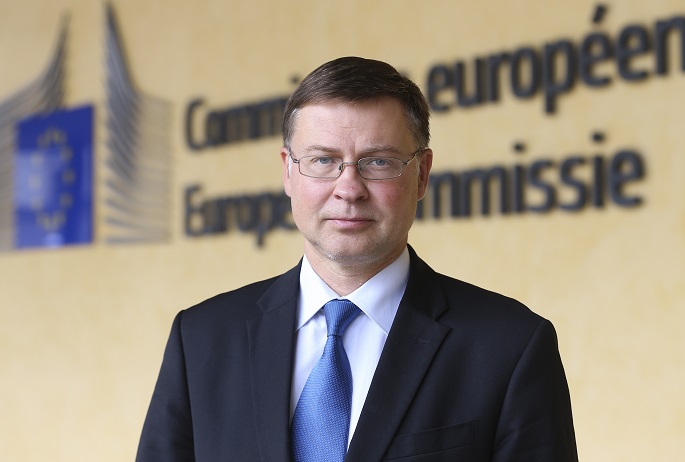Eurozone needs further reforms to ward off shocks
Published : 29 Jan 2019, 19:30
Valdis Dombrovskis, European Commission vice president for the euro and social dialogue, said here on Tuesday that the European Economic and Monetary Union (EMU or Eurozone) needed further reforms to resist possible future economic shocks.
This year, 20 years since the launch of the euro will be celebrated, and according to a recent Eurobarometer survey, 75 percent of Eurozone citizens recognized that the common currency is a good thing for Europe, Dombrovskis said at a conference.
"This is good news, but it's not a reason for us to become complacent. There is still a need to complete important reforms to deepen EMU and further build resilience," Dombrovskis said.
"We need a backstop for the Single Resolution Fund, and a European Deposit Insurance Scheme to ensure all depositors in the Banking Union enjoy the same high level of protection, regardless of which countries their deposits are in," he said.
The Single Resolution Fund was created to resolve failing banks in the Eurozone, and to shore up the whole financial system.
"We are also working to strengthen our crisis management tools: this means reinforcing the European Stability Mechanism, and also expanding our crisis response toolkit with precautionary instruments," Dombrovskis said.
Eurozone fiscal instruments have also been proposed, including financial support under a Reform Support Program to help member states implement difficult but necessary reforms, and a European Investment Stabilisation Function to help ensure that in a downturn, public investment is sustained, he said.
The discussions among Eurozone countries on the exact tools and design of the requisite fiscal instruments were still ongoing, he said.
"The point is that we have to be prepared for the next economic shocks when they come," said Dombrovskis, who is also in charge of the EU's financial stability, financial services and capital markets union.
Twenty years ago, the Eurozone started with eleven countries, and this number has steadily grown, Dombrovskis said. "Now we are 19 countries, with more countries lining up to join. This shows how much the benefits of strength, stability and convenience of the euro are appreciated."


